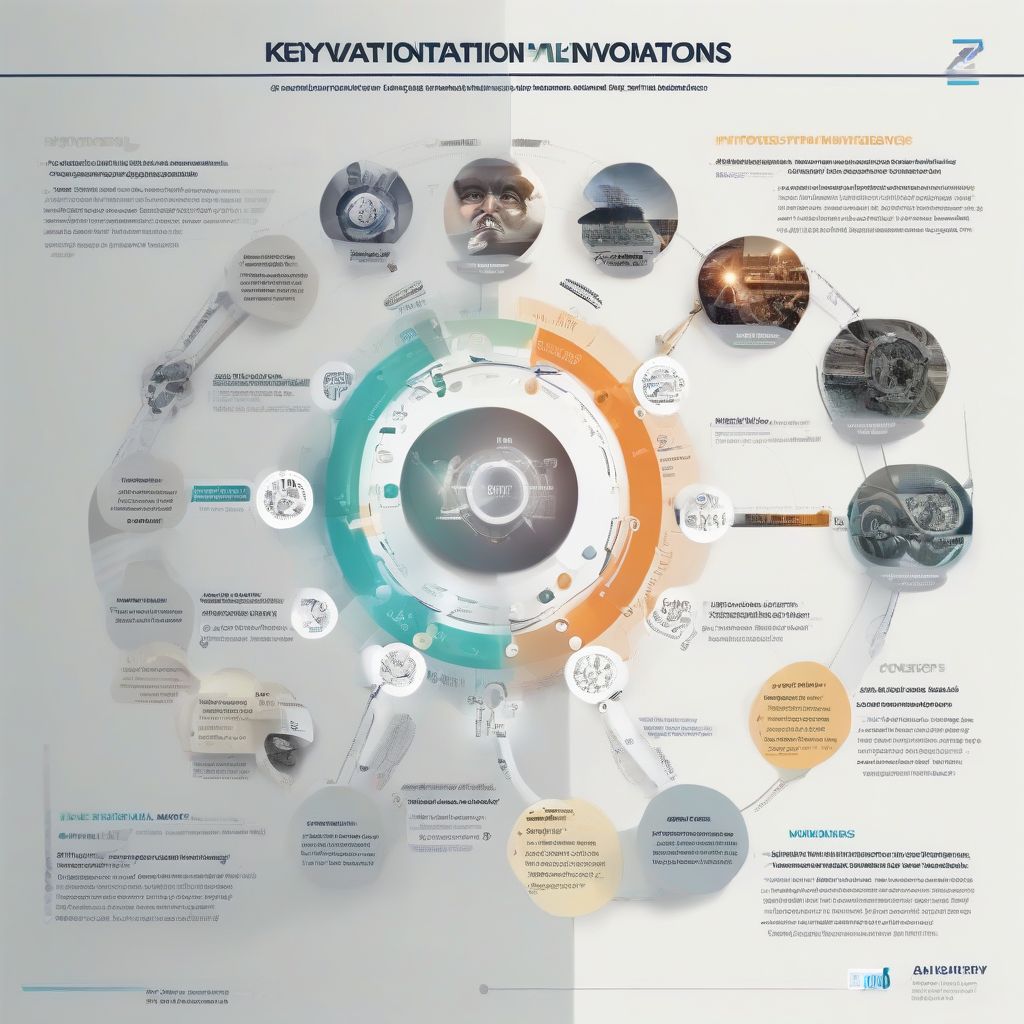Imagine a world without the internet, electricity, or even the printing press. Difficult, isn’t it? These revolutionary innovations have dramatically reshaped human civilization, and understanding the key insights they offer can help us navigate the future. From the wheel to artificial intelligence, each breakthrough holds valuable lessons about progress, adaptation, and the human spirit. Let’s delve into the heart of these historical transformations and uncover the wisdom they hold.
The Power of Incremental Progress: From the Wheel to the Printing Press
Many revolutionary innovations aren’t sudden bursts of genius but rather the culmination of smaller, incremental improvements. The wheel, for instance, evolved over centuries from simple rollers to complex spoked designs. Similarly, the printing press built upon existing technologies like block printing and screw presses. This highlights a crucial insight: breakthroughs often emerge from a continuous process of refinement and iteration. Don’t underestimate the power of small steps. As a nutritionist and meal prep coach, I see this principle in action every day. Small, consistent changes in diet and lifestyle can lead to dramatic improvements in health and well-being over time. It’s not about drastic overnight transformations but sustainable, gradual progress.
The Importance of Addressing a Need
Revolutionary innovations often address a pressing need or challenge. The printing press, for example, met the growing demand for readily available information. This principle reminds us that innovation is driven by purpose. Identifying a real-world problem and developing a solution is key to creating something truly impactful. Just like how meal prepping addresses the need for convenient and healthy eating in our busy lives.
Disruption and Adaptation: The Industrial Revolution and Beyond
The Industrial Revolution brought about unprecedented change, ushering in new technologies like the steam engine and the power loom. This period highlights the disruptive nature of innovation. Existing industries were transformed, and new ones emerged, forcing individuals and societies to adapt. This teaches us that innovation is not always a smooth, linear process. It can be disruptive and challenging, requiring us to embrace change and learn new skills.
The Role of Collaboration and Openness
The development of the internet exemplifies the power of collaboration and openness. Built on shared protocols and open-source software, the internet has fostered unprecedented levels of connectivity and information sharing. This underscores the importance of collaboration and knowledge exchange in driving innovation. Just like how sharing healthy recipes and meal prep tips within a community can inspire and empower individuals to achieve their health goals.
 Revolutionary Innovations Timeline
Revolutionary Innovations Timeline
The Human Factor: Creativity, Resilience, and Vision
Behind every revolutionary innovation lies human ingenuity, resilience, and vision. Consider the Wright brothers, who tirelessly pursued their dream of flight despite numerous setbacks. Their story reminds us that innovation requires perseverance, a willingness to experiment, and a belief in the power of human potential.
The Ethical Considerations
As we move forward with emerging technologies like artificial intelligence and genetic engineering, it’s crucial to consider the ethical implications of these innovations. History teaches us that technological advancements can have both positive and negative consequences. We must strive to develop and deploy these technologies responsibly, ensuring they benefit humanity as a whole.
Lessons for the Future: Embracing the Unknown
The history of revolutionary innovations offers invaluable lessons for navigating the future. It teaches us the importance of incremental progress, addressing real-world needs, adapting to change, collaborating openly, and considering the ethical implications of our creations. As we face new challenges and opportunities, these insights can guide us towards a more innovative and sustainable future.
Conclusion
From the simple wheel to the complexities of artificial intelligence, revolutionary innovations have shaped the course of human history. By understanding the key insights these breakthroughs offer – the power of incremental progress, the importance of addressing needs, the disruptive nature of change, the role of collaboration, the human element, and the ethical considerations – we can better navigate the future and harness the power of innovation to create a better world. What lessons from history do you find most compelling in the context of today’s rapidly evolving technological landscape? Share your thoughts in the comments below. Let’s continue this conversation and explore the future of innovation together.
- Amazon Kindle Edition
- History, Hourly (Author)
- IDEO, the widely admired, award-winning design and development firm that brought the world the Apple mouse, Polaroid's I-Zone instant camera, the Palm V, and hundreds of other cutting-edge products and services, reveals its secrets for fostering a culture and process of continuous innovation.
- Hardcover Book
- Amazon Kindle Edition
- Fisher, Sydney George (Author)
- Used Book in Good Condition
- Kelly, C. Brian (Author)
- Harney, Kevin G. (Author)
- English (Publication Language)
- Amazon Kindle Edition
- Ridley, Matt (Author)
- Hardcover Book
- Zuckerman, Gregory (Author)
- Hardcover Book
- Parker, Geoffrey G. (Author)
- Hardcover Book
- Wootton, David (Author)
- Amazon Kindle Edition
- Tsabolov, Sergey (Author)










